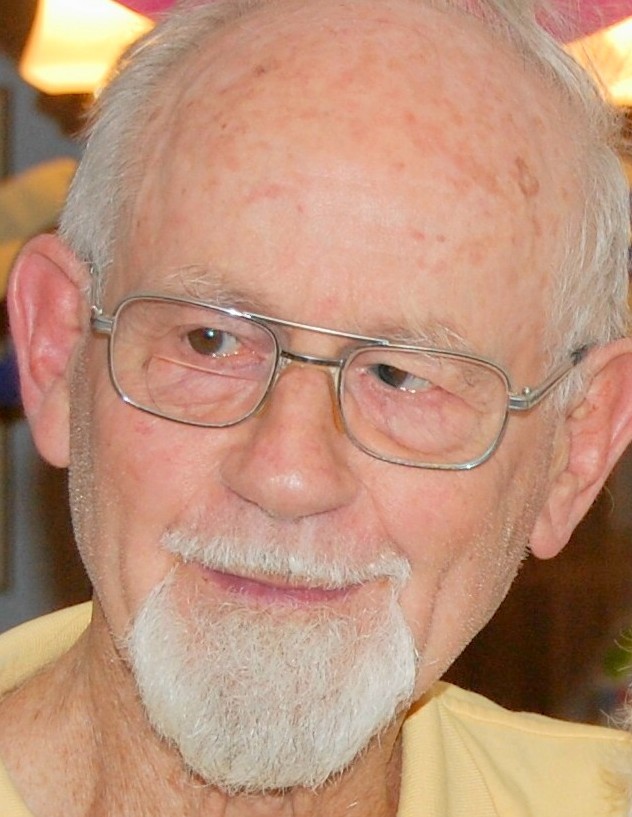Edgar Gasteiger, biologist and Cornell ‘citizen,’ dies at 99
By Krishna Ramanujan
Edgar Gasteiger, professor emeritus of physical biology, died Feb. 9 in Ithaca, New York. He was 99.
Gasteiger studied neural science and electrophysiology, with notable work on the neurophysiology of the spinal cord. He played a key role in developing the Section of Neurobiology and Behavior at Cornell in the 1960s, reorganized and improved premedical advising in the 1970s, and helped introduce the use of computing systems to the College of Veterinary Medicine.
But those who knew him believe his most valuable contributions came as a teacher and member of the Cornell community.
“He would have appreciated being remembered as more than just a professional scientist and professor, and rather as somebody who also cared about humanity, world peace and justice, something that ‘pure science’ might frequently lack nowadays, but which to his understanding was an essential part of university education and research,” said Birgit Albowitz, Ph.D. ‘87, a scientific consultant at the Ministry of Science and Education in the state of Lower Saxony, Germany, Gasteiger’s last graduate student before he retired.
Born Nov. 25, 1919, in Meadville, Pennsylvania, Gasteiger earned a bachelor’s degree (1942) from Allegheny College, a master’s (1943) from the University of Illinois, and a Ph.D. in biophysics (1956) from the University of Minnesota. In 1951, he joined the faculty at Harvard Medical School, while also serving as a research associate in surgery at Massachusetts General Hospital.
In 1957, he was hired as an assistant professor of physiology at the University of Rochester School of Medicine. He served there until 1961, when he joined Cornell’s faculty as a professor of physical biology at the College of Veterinary Medicine. Gasteiger was elected emeritus in 1987.
Cornell hired Gasteiger to fill a gap in research and teaching in the neural sciences and systems physiology, according to the late Cyril Comar, former head of the physical biology department, in a 1971 letter of support for Gasteiger. To fill those needs, Gasteiger developed and taught the courses Mammalian Neurophysiology and Functional Organization of the Nervous System.
Due to his background as a biophysicist, he brought systems analysis, electronic design and electrophysiology, and new principles and techniques of online computing, to the Department of Physical Biology and the veterinary college. His graduate students were the first to use interactive computing and make the conversion from analog to digital at Cornell. These efforts eventually led to the development of a computing facility that served the veterinary college and underpinned the thesis research for five of his doctoral students.
Along with studies on the nervous systems of mammals, Gasteiger was in the news for refuting controversial and widely discussed findings suggesting that plants had emotions. Previous research had asserted that plants responded to ‘psychic’ threats – shrimp being killed nearby – by altering electric outputs in their leaves. Gasteiger and his students repeated the experiment and debunked the results. The findings were published in Science in 1975, and served as the only university research to disprove the theory that plants respond to such ‘psychic’ stimuli with electric outputs from their leaves. “We need many more such studies showing that some public ideas are not true,” Albowitz said.
Along with publishing and presenting scores of papers, Gasteiger was an adviser and teacher who had a lasting impact on his students.
“He put a lot of time and effort into his teaching, particularly the undergraduate classes,” said colleague Ellis Loew, professor of physiology in the Department of Biomedical Sciences. “He recognized that he was not just faculty at the veterinary college, but also a citizen of the university at large.”
Gasteiger played an active role as a committee member to revise Cornell biological sciences and create the Section of Neurobiology and Behavior in the then-new Division of Biology in 1964. He was chairman of the Faculty Health Careers Advisory Committee from 1973-78, and in 1973 was appointed chairman of the Health Careers Office, which provided premedical advice and made career recommendations to hundreds of students. His advice to students and personal efforts were credited with greatly increasing the number of students who gained admission to health career schools after graduating.
“I would have to say that his dedication to the undergraduate programs was his greatest contribution,” Loew said.
He was predeceased by his wife of 49 years, Charlotte Gasteiger, and a son, Daniel. He is survived by three sons, five grandchildren and his partner, Anna Merson.
Media Contact
Get Cornell news delivered right to your inbox.
Subscribe

